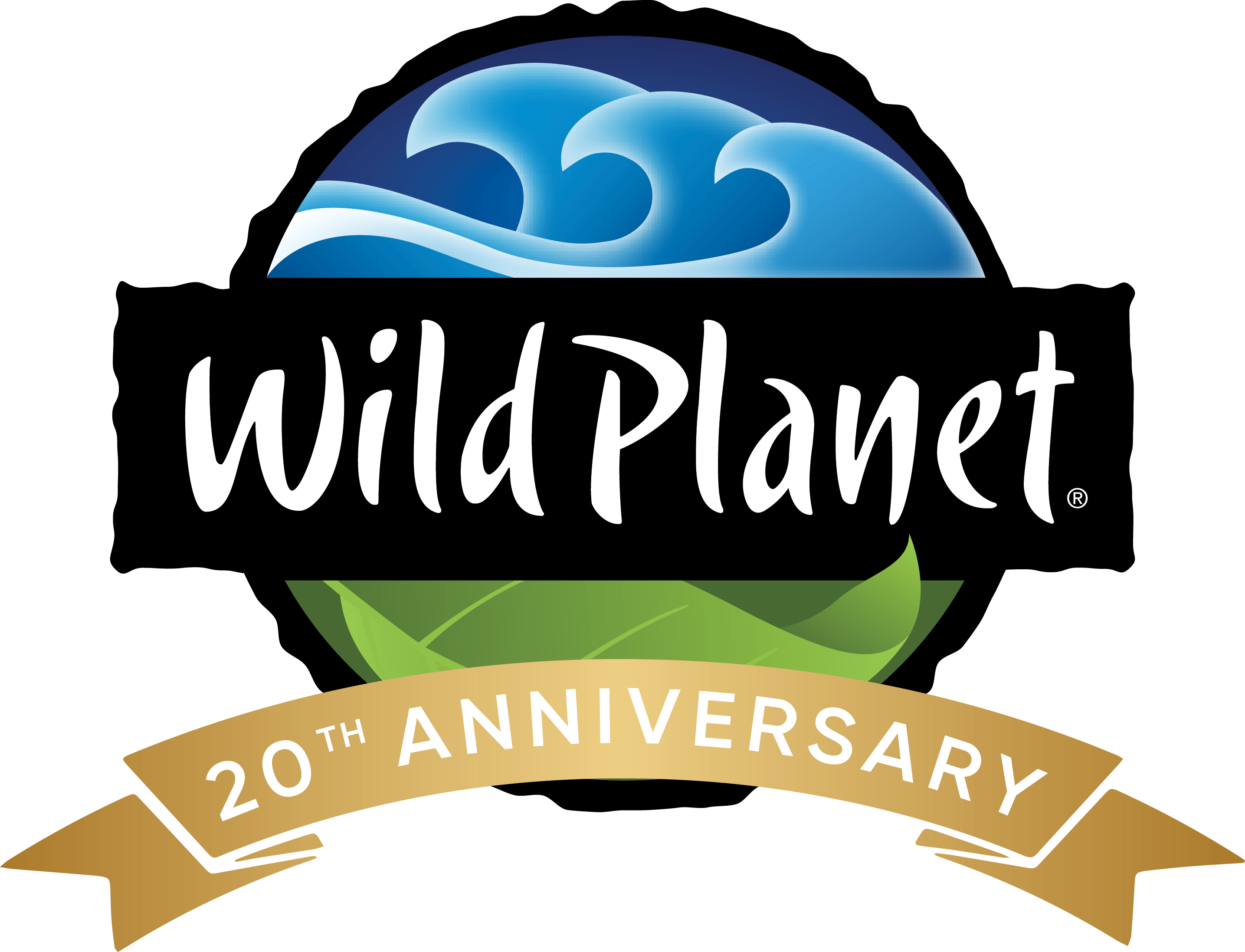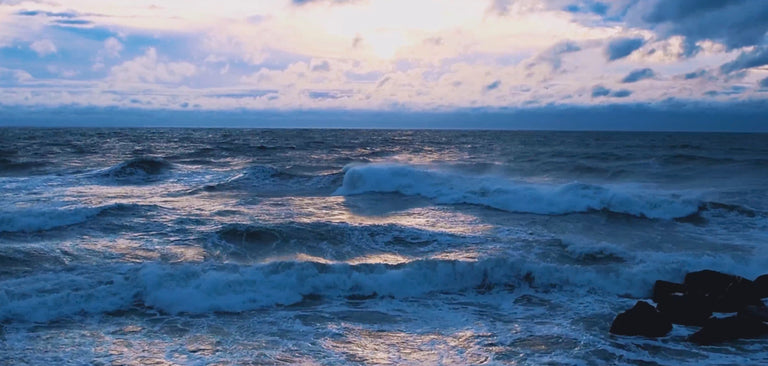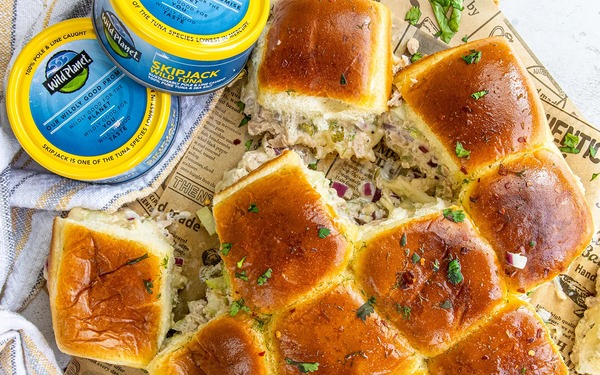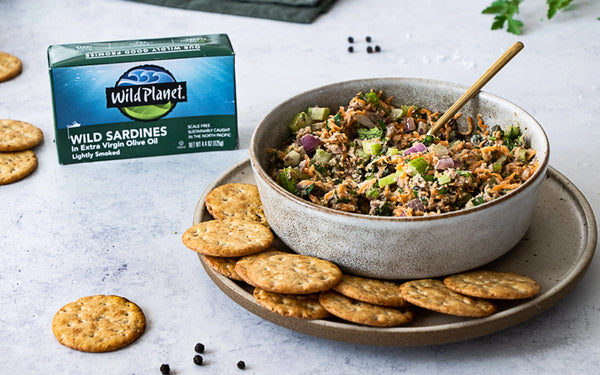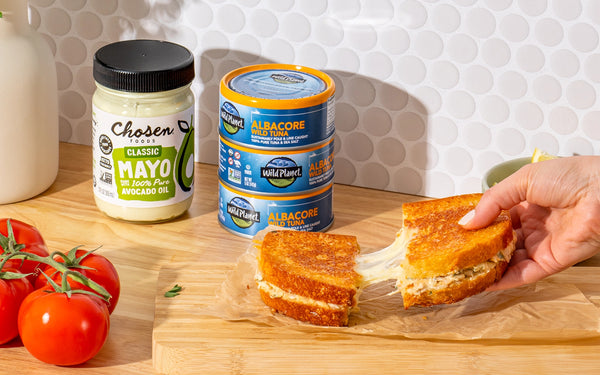Wild Planet honors the role the ocean plays in our lives and we hope to inspire action against one of its biggest threats – pollution. We recognize ocean pollution causes and celebrate solutions that each one of us can make in our everyday lives to keep our ocean clean and vibrant now and for future generations. Because there’s only one wild planet.

What’s Polluting our Ocean?
The National Geographic Society defines marine pollution as a combination of chemicals and trash. Most of these pollutants are washed and blown or dumped into the ocean, where they destroy fish, organisms, and other marine life.
Chemical contamination occurs primarily when runoff of farm fertilizer enters the waterway, through creeks, streams, and rivers that ultimately reach the ocean. These fertilizers contain concentrated nitrogen and phosphorus, which promotes the growth of toxic algal blooms – endangering wildlife, as well as negatively contributing to human health and the economic welfare of fishing communities and coastal tourism.
The other key pollutant to our ocean is trash, primarily fishing gear (mostly nets, ropes, buoys, floats) and plastic (bottles, garbage bags, packaging) that comes from littering, wrongful fishing activity, wind, as well as poor waste management.

An Island of Ocean Garbage
The largest accumulation of ocean plastic in the world, known as the Great Pacific Garbage Patch (GPGP), is located halfway between California and Hawaii and covers approximately 1.6 million square kilometers, equating to two times the size of Texas. Floating in this patch is an estimated 1.8 trillion pieces of plastic, weighing over 88,000 tons – equal to the weight of approximately 440 blue whales. This debris consists of floating, resilient plastics that travel the currents and collect on-and-below the ocean’s surface. A majority (75-86%) of the plastic debris in the GPGP originates from offshore wrongful fishing activities. The Ocean Cleanup shared that trawler activity, which includes pulling a fishing net through the water, makes up 48% of waste. Fixed gear, such as traps which are set and later retrieved, make up 18%. Longlines, which use a long line of baited hooks and attract a variety of ocean species outside of the targeted catch, make up about 14%.
Unfortunately, the GPGP is just one of five offshore plastic accumulation zones in the world.
What is the Solution?
While the statistics can be staggering, there is still power within each one of us to make a difference for our ocean today and protecting its legacy for future generations. There are two viable choices to make regarding ocean pollution: cleaning up what’s there, and preventing future pollutants.
Here are a few ocean pollution solutions that you can do today to make a difference:
- Shop for sustainable seafood. When you shop for sustainable seafood, like those offered by Wild Planet, you reward fisherman that are committed to 100% pole and line fishing, and targeted fishing without the use of FADs (fish aggregating devices). These sustainable fishing methods do not result in discarded nets and are free of the excessive wasteful bycatch.

- Reduce single-use plastic usage. The less plastic brought into our homes, the less plastic that will find its way to the water. According to Plastic™ Oceans, single-use plastic accounts for 50% of the 380 million tons of plastic produced each year. Single use plastic includes plastic bags, water bottles, cups, straws, carry-out containers, and other plastic items that are used once, then thrown away. By switching to reusable bags, reusable straws, glass containers and reusable storage containers and bags we can keep plastic out of the waste stream.
- Recycle the right way. According to the Oceanic Society, only 9% of plastic is recycled worldwide. Ensuring your plastic is clean before recycling is critical, as is following your local community’s recycling guidelines. If in doubt, check with your local recycling center about the types of plastic accepted, or check Earth911s recycling directory.
- Say no to microbeads. These tiny plastic particles are increasingly finding their way into our ocean through sewer systems. Microbeads are found in some face scrubs, cosmetics, bodywashes and toothpastes—identified as “polyethylene” and “polypropylene” on ingredient labels. Check here for a list of products that contain microbeads.
- Choose non-toxic chemicals and dispose of any chemicals you do use properly to keep them out of the water system. Either buy chemical-free cleaners or make your own natural household cleansers using ingredients like vinegar, baking soda, essential oils and water in a glass spray bottle to be environmentally-friendly as well as budget-friendly.
 As the original sustainable seafood company, we at Wild Planet honor our ocean and, since 2004, we’ve been using our sustainable canned seafood products, our fishing practices and our passion to inspire lasting change. From day one, our founder, Bill Carvalho, had the vision to transform fishing into a force for good. We believe in the power of one. One change in the way we shop or the way we eat can protect our future and the one wild planet we share.
As the original sustainable seafood company, we at Wild Planet honor our ocean and, since 2004, we’ve been using our sustainable canned seafood products, our fishing practices and our passion to inspire lasting change. From day one, our founder, Bill Carvalho, had the vision to transform fishing into a force for good. We believe in the power of one. One change in the way we shop or the way we eat can protect our future and the one wild planet we share.
Sources:
- https://www.nationalgeographic.org/encyclopedia/marine-pollution/
- https://theoceancleanup.com/great-pacific-garbage-patch/
- https://plasticoceans.org/the-facts/
- https://www.oceanicsociety.org/resources/7-ways-to-reduce-ocean-plastic-pollution-today/
- https://theoceancleanup.com/updates/the-other-source-where-does-plastic-in-the-great-pacific-garbage-patch-come-from/
